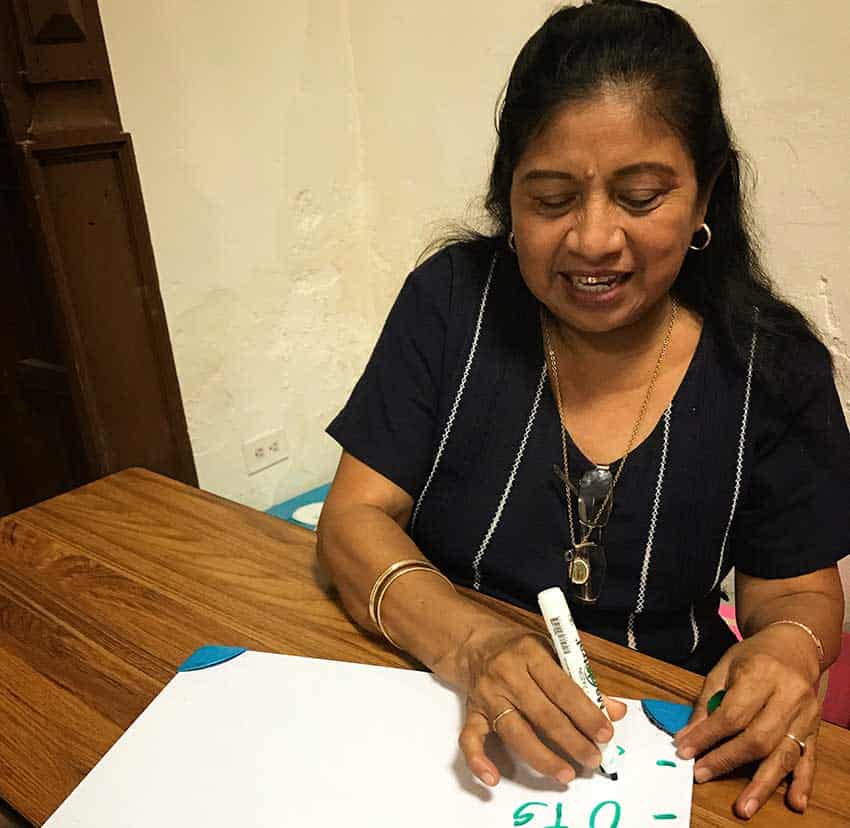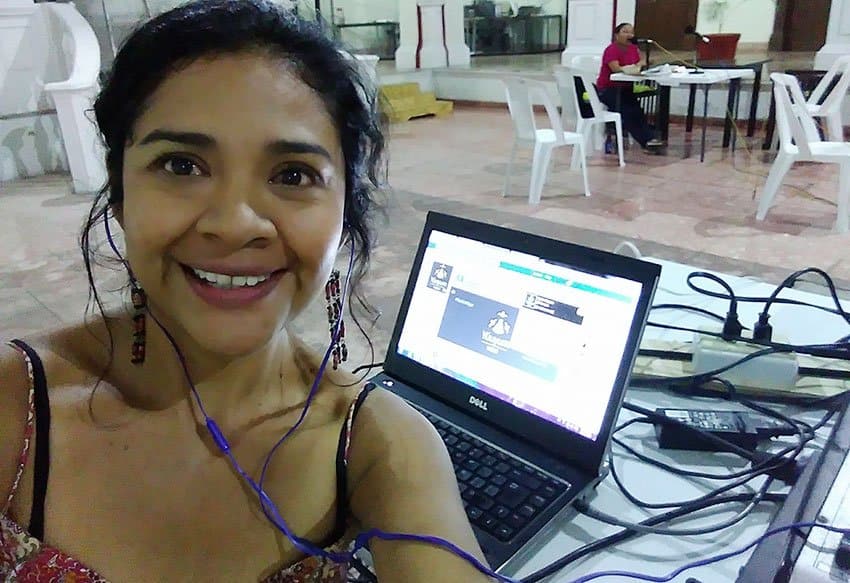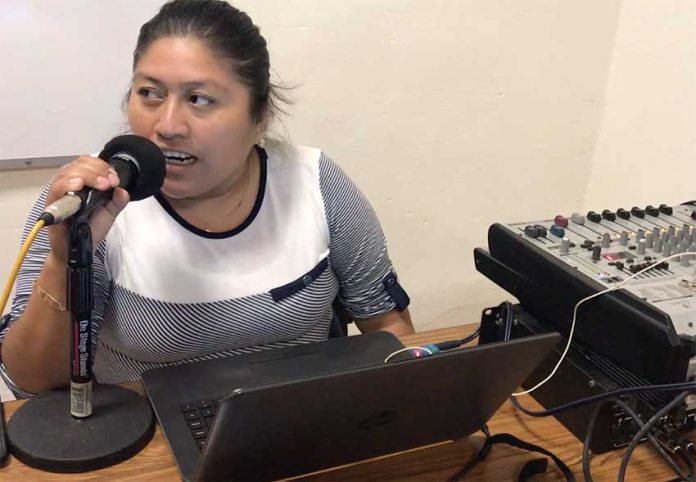It’s all there, laid out in the popular vernacular of Mexico. The Mayan Riviera. Mayan food. Mayan pyramids. Mayan traditional clothing. Mayan people. Mayan design, etc.
But while the Mexican government has done a tremendous job at promoting Mayan cultural heritage for the consumption of both national and international tourism, there are members of Yucatán’s Mayan community who see hypocrisy in spreading the term Maya without any focus on preserving the Mayan language.
There are about 30 Mayan languages currently spoken by about 5 million people across southern Mexico, Guatemala, Belize and Honduras. The languages are considered endangered, according to Oxford University Press, because there are documented cases of children in some communities who are not learning them.
And some Yucatán locals say interest in their language, Yucatecan Maya, is dwindling, even while tourism numbers soar in places such as Tulum, a resort town built around a sacred Mayan archeological site. There’s even a project for a high-speed train emblazoned with the name “Tren Maya” that’s in the works right now, with its proposed trajectory shredding through portions of Mayan jungle to allow tourists easier access to currently remote Mayan sacred sites.
But there are efforts under way to save the language from extinction.

Teresa Pool Ix is a retired preschool teacher and language preservation advocate and one of the 10 volunteers that make up Radio Yuuyum, a Mayan language radio station based in downtown Mérida, the Yucatán peninsula’s most booming metropolis.
“The problem of Yucatecan Maya is there really isn’t much family transmission anymore,” Pool Ix said. “Parents aren’t really speaking with their children in Maya. I don’t know why there is still this resistance; that our language isn’t valid or interesting or important, when we know that our language is very complex and beautiful. It would be a shame for us not to do anything against its loss.”
Around the Yucatán peninsula it’s estimated that about 800,000 people speak Yucatecan Maya. Some families teach the language to their children, and it becomes their native tongue. Later, the kids learn Spanish in school and in society outside of the smaller pueblos. But Pool Ix says this is not as common as it used to be.
“Older people speak it, but what happens when they start to die?” Pool Ix said. “The language loses speakers and Spanish gets stronger. There is this attitude of disinterest on the part of the government, both local and federal, so the materials that are emitted are very limited and they don’t arrive in the more remote communities.”
Radio Yuuyum broadcasts every Monday from 5:00-10:00pm CT and has for the past three years, and online at www.radioyuyuum.org. The programming includes Mayan language music such as rapper Patboy, discussions, language lessons and an hour of news which is selected each week by the station manager and translated into Mayan. The news deals with issues facing the state of Yucatán and the peninsula.
“What we’re doing here right now doesn’t seem like we’re doing much,” Pool Ix said. “Here we are 10 crazy people, but behind this there is something more. We want to grow, we want more people to get excited to participate. This is the truth of why we do this. We love our language. We love our culture. Though I know this will not bring me any economic benefit.”

And while Maya is never a requirement for any job or school in the region, knowledge of English has become obligatory. Many young people are even studying Mandarin in expectation that it might become the world’s next imperial language. It all stems from economic pressures, Pool Ix said.
“Sometimes we think that, well, we don’t get any work if we speak Maya,” Pool Ix said. “But me as a person, I will be rich because I will transmit what I know. I will know more about my culture and language. People say the Mayans disappeared. No, they didn’t disappear. We are still here.
“Sure, we don’t live in the pyramids anymore. Everything changes, even the language. The language is a living thing. We have to accept the the changes of the language. But people lack knowledge of their origins.”
Just up the road from Radio Yuuyum’s broadcasting space in Mérida’s colonial center is the Gran Museo del Mundo Maya, a 22,600-square-meter space which tells the story of the Mayan people, starting with the crash of a meteor off the coast of Yucatán.
Many scientists believe that event ultimately led to the extinction of dinosaurs and the formation of the Yucatán peninsula and its abundant underground freshwater rivers which pool into cenotes, considered sacred to the Mayan people and now a popular tourist attraction.
The museum is immense and touches on the beginning, prime and current Mayan civilization, with heavy focus on the Classic period of Mayan culture, the Spanish invasion and subsequent colonization whose effects, Pool Ix says, are still clearly felt to this day.
“There was an event recently at the Gran Museo Maya, and it was called the ‘Pueblo Maya’ though the least-represented group there was that of the Mayan people,” Pool Ix said. “They just use our name. They sell our name. They sell our culture. But only certain aspects, because the language doesn’t interest them. They see it as something that doesn’t serve them.
“But when it comes to doing a special ritual, they want it in Maya; they hire people and they do it in Maya because it’s lovely, and then they applaud for us. But that’s it. We are like actors, nothing else. The people should occupy these spaces. And the people who occupy the spaces the least are us. Unfortunately, they sell all of this under the name of the Maya, the very people who continue to live in difficult situations economically, who continue to be forgotten and abandoned.”
Throughout the years, the Yucatán peninsula has featured a number of television and radio programs, but the number has dwindled. Radio Yuuyum operates out of a space donated by Instituto Universitario del Pueblo. The radio is also supported by some listener and other donations. Pool Ix says that television has been the best way to reach the pueblos, but they hope that with the increase in internet availability they will be able to reach more communities.
“We can’t close our eyes to our own identity,” Pool Ix said. “ If people really knew their culture, they would defend the language. We hope that people wake up and start to worry about the language and start to speak the language.”
Socorro Cauich is a high school teacher and Radio Yuuyum volunteer host. She says her hometown is about 20 minutes away from Chichen Itzá, arguably the most visited archaeological site in Mexico. She learned Mayan when she was about eight years old.
“The goal in some communities is that whenever you speak, you try to speak in Maya,” she said. “Eventually, the kids will understand and be able to speak. I am applying this as well within my community and the places where I go. In my community, I started to learn Maya in certain places.
“But when I’m in the city, people know that I speak Spanish so they speak Spanish to me. Outside of the communities, there is the issue of people discriminating against it. If someone speaks Maya, there’s the idea that they are poor, or they are ignorant. So what people do is decide not to speak it for fear that others will make fun of them and they will undervalue them.
“In the school where I teach, many of the students more or less speak and understand Maya. But it’s always a challenge to really get them to converse in it. I generally convince my students to speak Maya after two and a half years of trying, then they come to the third year and now they think it’s cool. They like it. They want to speak Maya. But the process dies because then they finish high school and in many cases move away. But there is life in this language, it’s not something that has passed us by.”
Megan Frye is a writer, photographer and translator living in Mexico City. She has a history of newsroom journalism as well as non-profit administration and has been published by several international publications.
